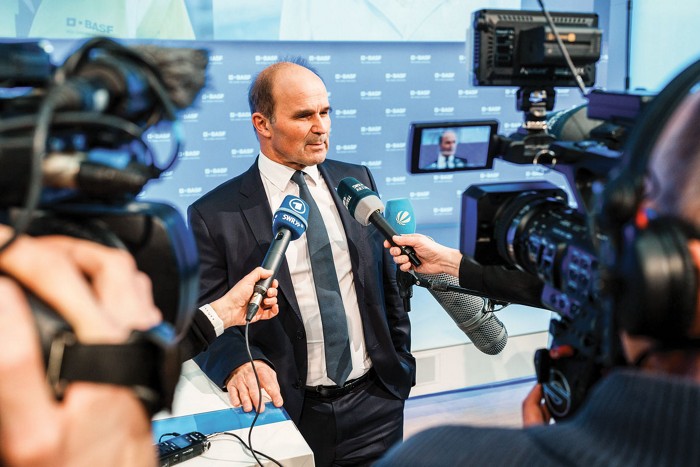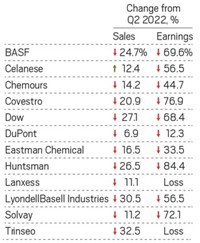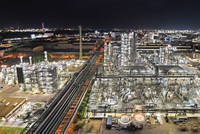Advertisement
Grab your lab coat. Let's get started
Welcome!
Welcome!
Create an account below to get 6 C&EN articles per month, receive newsletters and more - all free.
It seems this is your first time logging in online. Please enter the following information to continue.
As an ACS member you automatically get access to this site. All we need is few more details to create your reading experience.
Not you? Sign in with a different account.
Not you? Sign in with a different account.
ERROR 1
ERROR 1
ERROR 2
ERROR 2
ERROR 2
ERROR 2
ERROR 2
Password and Confirm password must match.
If you have an ACS member number, please enter it here so we can link this account to your membership. (optional)
ERROR 2
ACS values your privacy. By submitting your information, you are gaining access to C&EN and subscribing to our weekly newsletter. We use the information you provide to make your reading experience better, and we will never sell your data to third party members.
Economy
BASF seeks deeper cuts at its Ludwigshafen site
Firm says the competitiveness of its flagship facility suffers chronic ills
by Alexander H. Tullo
February 28, 2024
| A version of this story appeared in
Volume 102, Issue 7

Hamstrung by particularly high costs and slow demand in Germany, BASF plans to cut about $1.1 billion in annual costs at its headquarters site in Ludwigshafen, Germany, by the end of 2026. The measures arrive on top of a cost-reduction program the company launched at the complex a year ago.
The new cuts come after a dismal year for the company, the world’s largest chemical maker. BASF’s sales declined by 21.1% in 2023 versus the year before because of lower prices and volumes. Adjusted earnings dropped 60.1%.
Losses in Germany played a big role in the poor performance, BASF says. “In the course of 2023, earnings at our largest production site in Ludwigshafen deteriorated further in an extremely weak market environment,” BASF chairman Martin Brudermüller said in a Feb. 23 presentation announcing the financial results.
The planned cuts are the third in recent years for BASF in Germany. In October 2022, it announced a $500 million savings plan focused mainly on its home country. Then in February 2023, it detailed a plan to save another $200 million in Ludwigshafen. As part of that plan, the company trimmed production of ammonia, nitrogen fertilizers, soda ash, caprolactam, adipic acid, toluene diisocyanate, and related precursors. It said 700 workers would be affected.
But the problems with the Ludwigshafen site’s competitiveness are deep, Brudermüller said, necessitating more-aggressive measures. He said the new trimming will come from both production and nonproduction areas as well as “adapting capacities to market needs,” since plant operating rates at the site have been low. “Unfortunately, the further program will also lead to additional job cuts,” he said.
Additionally, BASF’s board intends to study the long-term positioning of the Ludwigshafen site relative to “changed market realities in Europe and Germany.” BASF promises more information on the review in the second half of 2024.




Join the conversation
Contact the reporter
Submit a Letter to the Editor for publication
Engage with us on Twitter